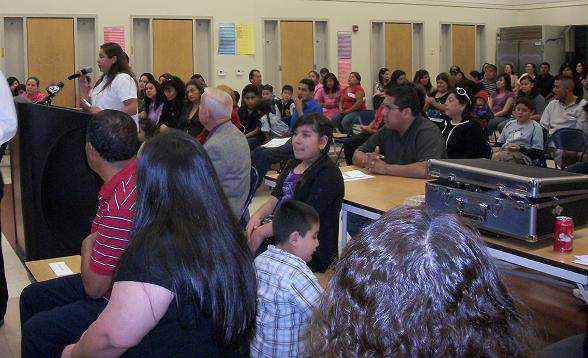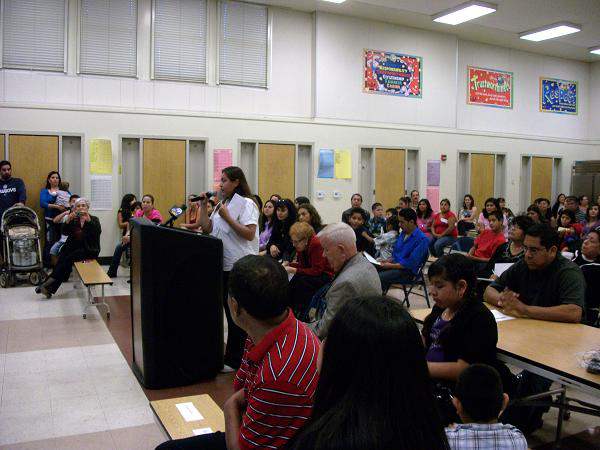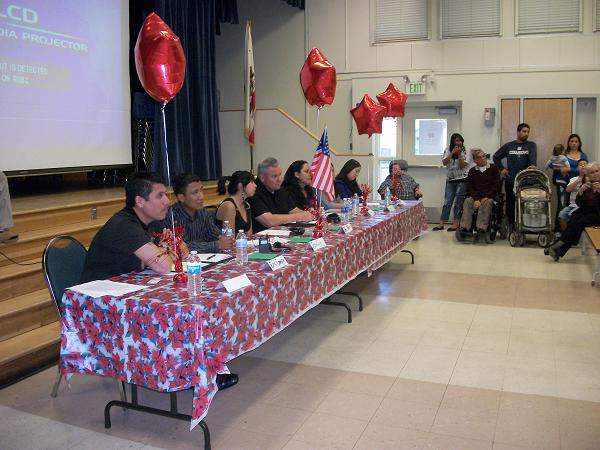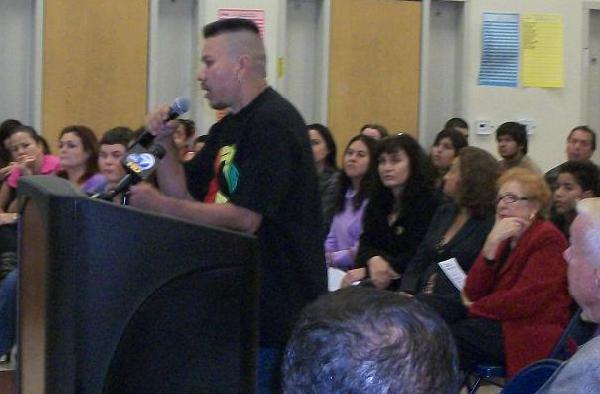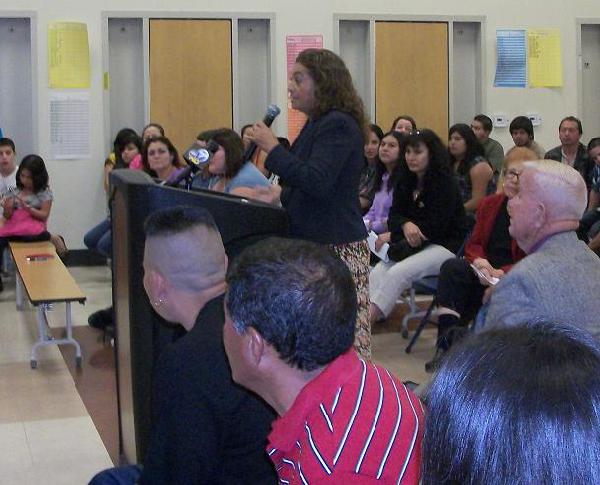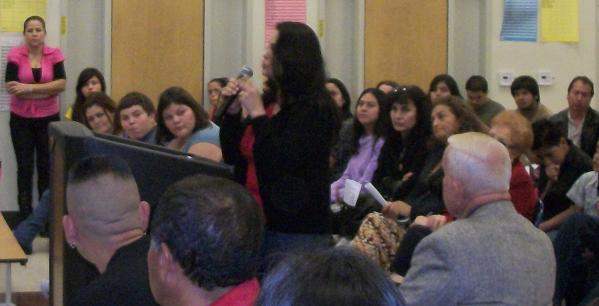| About Us | Contact Us | Calendar | Publish | RSS |
|---|
|
Features • latest news • best of news • syndication • commentary Feature Categories IMC Network:
Original Citieswww.indymedia.org africa: ambazonia canarias estrecho / madiaq kenya nigeria south africa canada: hamilton london, ontario maritimes montreal ontario ottawa quebec thunder bay vancouver victoria windsor winnipeg east asia: burma jakarta japan korea manila qc europe: abruzzo alacant andorra antwerpen armenia athens austria barcelona belarus belgium belgrade bristol brussels bulgaria calabria croatia cyprus emilia-romagna estrecho / madiaq euskal herria galiza germany grenoble hungary ireland istanbul italy la plana liege liguria lille linksunten lombardia london madrid malta marseille nantes napoli netherlands nice northern england norway oost-vlaanderen paris/Île-de-france patras piemonte poland portugal roma romania russia saint-petersburg scotland sverige switzerland thessaloniki torun toscana toulouse ukraine united kingdom valencia latin america: argentina bolivia chiapas chile chile sur cmi brasil colombia ecuador mexico peru puerto rico qollasuyu rosario santiago tijuana uruguay valparaiso venezuela venezuela oceania: adelaide aotearoa brisbane burma darwin jakarta manila melbourne perth qc sydney south asia: india mumbai united states: arizona arkansas asheville atlanta austin baltimore big muddy binghamton boston buffalo charlottesville chicago cleveland colorado columbus dc hawaii houston hudson mohawk kansas city la madison maine miami michigan milwaukee minneapolis/st. paul new hampshire new jersey new mexico new orleans north carolina north texas nyc oklahoma philadelphia pittsburgh portland richmond rochester rogue valley saint louis san diego san francisco san francisco bay area santa barbara santa cruz, ca sarasota seattle tampa bay tennessee urbana-champaign vermont western mass worcester west asia: armenia beirut israel palestine process: fbi/legal updates mailing lists process & imc docs tech volunteer projects: print radio satellite tv video regions: oceania united states topics: biotechSurviving Citieswww.indymedia.org africa: canada: quebec east asia: japan europe: athens barcelona belgium bristol brussels cyprus germany grenoble ireland istanbul lille linksunten nantes netherlands norway portugal united kingdom latin america: argentina cmi brasil rosario oceania: aotearoa united states: austin big muddy binghamton boston chicago columbus la michigan nyc portland rochester saint louis san diego san francisco bay area santa cruz, ca tennessee urbana-champaign worcester west asia: palestine process: fbi/legal updates process & imc docs projects: radio satellite tv |
printable version
- js reader version
- view hidden posts
- tags and related articles
Colton Immigrant Community Meets PD Chief, Demands Justiceby Rockero Tuesday, Dec. 14, 2010 at 1:19 AMrockero420@yahoo.com Saturday, December 11, 2010
Leer este informe en español: Comunidad Inmigrante de Colton Se Reunió con Jefe de Policía para Reclamar Abusos
The committee Latinos Unidos de Colton, with support from the San Bernardino Community Services Center, the Rapid Response Network, Inland Congregations United for Change, and the Inland Empire Chapter of LULAC, organized the meeting not only to give community members a voice, but to learn from the chief and other experts, such as ACLU immigrant rights attorney Lucero Chávez, what the law is, and also to ask for reforms that would benefit the community and give them a reason to trust the police. Gabriela Cabrera Figueroa, a thirty-something woman with a gravity of presence and the president of Latinos Unidos, chaired the meeting. She began by welcoming everyone and thanking them for their presence. "I would like to thank Chief of Police of Colton Bob [Miller], as well as Detective Campa, Dr. Tom Rivera from Cal State San Bernardino, and Mr. Tom Dolan from the organization ICUC for their presence. We would also like to thank [police chaplain] Robert Johnson [and] Maribel Núñez." She then introduced Verónica Martínez, who explained how the Latinos Unidos Committee came about and what it has been doing. "It arose from need to organize our Colton community, and to raise our voice as a show of rejection of certain injustices that are focused on our community. We've been holding informative meetings for quite some time and our committee has grown because of it and through that growth, changes have strengthened our community. It's thanks to the patience and credibility of our members and comrades in the community that we can say that we're here today." She also outlined the committee's non-discrimination policy: "Our committee doesn't discriminate against anyone. Rather, it looks to strengthen the ties of friendship and solidarity across the Colton community. José Luis Ojeda followed, and shared with those present the purpose of the day's gathering. "The main reason for this meeting is to inform the chief of the injustices that are occurring and to try to come to agreements that allow the tranquility of Colton to return so we no longer feel persecuted and harassed by the police. Basically, we want this practice end. Additionally, I'd like to say that we're hardworking people, not criminals. Moreover, I believe it is of utmost importance to emphasize that only working fairly--community, police--can this series of abuses that currently are being committed end, as long as we stick to mutual respect to find solutions to the problems afflicting us." José Luis Salcedo, a white-haired elder with a soft voice and a communications earpiece in one ear, then summarized the problems the community has been facing: "The immigrants who live here in the City of Colton feel harassed by unfair policies relating to the impounding of our automobiles for not having a license." He continued, "The many testimonies we have collected demonstrate how the police has focused predominantly in areas where the majority of the poor people with few resources live, such as the area where we reside. Often, we've had people who have had their car taken away when it was parked at their house, which is private property. We know many people have been stranded on the street in the middle of the night, people have had to walk many miles to get home. Many residents have had their cars confiscated as many as five times in a one-year period, while residents in other, affluent areas, neighborhoods south of the 10 freeway, aren't dealing with the same thing. The tow and vehicle impound fees are excessively high. It carries severe economic consequences for our families. The cost to a family exceeds $3,000 for a month. Our families earn much less than that. People have gone through losing their houses, losing their apartments, missed school for the children. Frequently, when picking up our property from the city towyard, Our personal property has been stolen from our cars. Even once our cars have been auctioned off, the vehicle is turned over without the registration, which costs us time and money. The City of Colton, which receives up to $30,000 per year for the storage of impounded vehicles and around $80,000 for the sale of impounded vehicles." He concluded, "Chief, we wish to remind you that the majority of our people respect the law and must drive without a license because they have no other alternative. Impounding cars only contributes to greater insecurity in our communities. It creates mistrust of the department among our families, increasing insecurity and criminality. Thank you." Community member Salvador Rivera then guided numerous community members through testimonies of injustice committed by the Colton Police Department. Many residents told of being stopped for no reason, and of not being told why they were being stopped. Many of those sharing this experience suspected that they were being racially profiled. Another situation that was reported by several victims was having their car towed from in front of their houses or while it was in their driveway long after they had parked it. One man, Rodolfo, asked a simple question. "The motorcycle officer who stopped me had a bandanna tied around his head without a helmet. When he stopped me, he said I was going too slow. I wanted to tell him, 'You are also committing an infraction, or correct me if I'm wrong, but you're also committing an infraction by having a bandanna on but no helmet.' I was asking you to answer whether or not this is true, is he committing an violation also?" The chief did not answer the question. José Soya spoke in detail about the the excessive fees he has had to pay, as well as a violent incident that occurred as a result of his no being able to drive. "I'm just here to say that they've taken some eleven cars from me, and for each car they take, it's $1,500, plus $1,500 for the ticket, and then you have to get a new car to be able to get around, and that's another $1,500. It means that in total, you have to pay $4,500 at a time when they take them. They've taken eleven-some cars from me now, and I don't want to drive any more. Two weeks ago, I went from here in Colton to San Bernardino, and I went on my bicycle. Some African-Americans, six African-Americans, grabbed me and beat me. Valerie has pictures of how I ended up. It's just that, for fear of driving, we go out walking or cycling and are more vulnerable to assault or battery. That's all." The City of Colton charges a $200 administrative fee, a per diem storage fee ranging from $35 to $50, as well as the towing fee, which varies. At this rate, a mandatory 30-day impound generates a minimum cost of $1250.1 A woman reported being racially profiled: "They discriminate against us because of our looks, because we look Mexican. Because I've been living here in Colton for twenty years and I have never seen what I'm seeing! The motorcycle stopped me three times in three weeks." She said that the officer said he had stopped her for something hanging from the mirror, and once he saw her license, left. The same thing happened the second time she was stopped, except that rather than offering a pretext, he simply asked her for her license and left once she provided it. She also spoke of witnessing a police officer in the parking lot of Cardenas Market who stopped a man on his way to his car with his shopping cart and asked him for license before he even got there. When he was unable to provide it, the car was impounded. "So what I'm asking for is justice, that you please respect people,because I've seen a lot of injustice--moms who have been taken out with their groceries, with their children, when they were just taking their food home." Mr. Rodriguez then shared his testimony: "This is something very sad that happened to a man. He was at my house; he worked with me that day. Since i couldn't take him home that day, that man went on foot. It was a five-minute walk, but he had to cross the park. He was killed that day. The next morning he was dead. He was 150 feet, 200 maximum from where he lived. And there, just across the street, he was murdered." After about 10 testimonies, the chief was asked to explain the department's policies on checkpoints and car impoundment. The chief introduced himself in Spanish, but continued the rest of his lecture in English. "There is a concern that I hear about trusting the police. [...] The only way we can build trust is start a process like this one." He then went on to address the issue of improperly-issued citations. "As far as the citations many have received, once the citation is written, that's why we have a court system. To go in front of a judge and present your case. And to present your case, the judge, in court will decide whether the citation was issued properly or not." He then addressed the excessive impound fees: "Now, a lot of what I've heard today involves towing fees. They're very expensive, I agree. The reason this law was enacted across the state of California, is because the legislature, the elected, was trying to discourage citizens from driving without a license. It became a problem in California that unlicensed drivers were becoming involved in automobile accidents, did not have insurance, and it became a problem. But I've always noticed that it's easy to make a law, but the impact on the community comes later, which is what we're experiencing here today." The first legislated attacks on automobility in California came in 1992, when collecting the Social Security number of driver's license applicants was authorized, ostensibly to help track down the "deadbeat dads" then being demonized in the media but effectively cutting off unauthorized immigrants from access to a legal way to drive. In 1994, SB 976, which banned licenses for the undocumented in more explicit terms, went into effect along with a raft of "tough on crime" legislation including laws authorizing thirty-day impoundment of cars driven by unlicensed drivers and the Three Strikes Law.2 The same year, California voters approved the racist Proposition 187, which, had it not been found unconstitutional, would have denied health care and educated to the undocumented. It is also the same year NAFTA went into effect and began driving millions of Mexicans from their ancestral lands. The chief subsequently addressed the professionalism of his officers. "It's my responsibility to make sure our officers and courteous and that they help you with any problem that you have. If this is not happening, we have a system in place that you can file a citizen's complaint, and that's fully investigated. That is California law also. I've told the committee that I work with that I work with human beings. And on occasion, I become aware of issues officers have done in the community that the community doesn't like, and my job is to correct that. I was very touched at the council meeting when 150 people showed up with families in the audience that we had to do something. That's why I called Dr. Rivera at Cal State San Bernardino. I had worked with him before when I worked at Cal State, and I wanted to have some kind of a committee to get a group of people together to dry to address all these concerns." He then spoke on the city's towing policy. "The vehicle code of the state of California states if you're unlicensed, you cannot drive a car." "I think it's important for us to try and find a way in our community to simply help people drive legally, so then these kind of problems don't come up." He then commented on the community members who shared experiences of racial profiling. "As far as the things I have heard about racial profiling, officially and from my office, we do not racially profile. That--them two words are used a lot in policing, that you'll hear sometimes in the community, that the police are looking at a certain race. We don not--that is not acceptable, everybody should be treated equally and fairly. And if it comes to my attention, we will deal with that." He then lauded the police and explained his attitude toward coming to the afternoon meeting. "I knew when I came to this meeting, some of the citizens were not going to be happy with us. But I promised myself not to be defensive and to listen to everyone." Next, a young woman asked the chief if he was willing to make specific changes. When asked to allow people to make a call from an officer's phone when losing a car, the chief said that he would look into the technology. When asked for a 30-minute grace period to find another driver to take a vehicle that might otherwise be impounded for 30 days to a safe place, the chief said that he would look into it. When asked to not leave people stranded in unsafe areas, he agreed. When asked to end racial profiling and to limit stops to those made with probable cause, he looked incredulous. "That's a tough question you just asked me. That question's been debated for the last 25 years in law enforcement. But again, our community, which I care about a lot, I answer it this way. We don't racial profile. We target activity." When asked if he would continue to review the policies with community input, he agreed, but on one condition. "I will continue to meet with any group, I only have one requirement, and that's that we bring some good food next time." The community then submitted a copy of the City of Oakland's towing policy, which is currently looked to as a best practice within the immigrant rights community. The floor was then opened up for questions from the community either for the chief or for the legal experts. A woman asked if the police can impound a car that is not being driven. He said that he would have to look into the particular case. Another woman asked about ways to measure racial profiling, whether through department statistics or having officers identify themselves to their targets, and how to pursue justice when racially profiled. The chief answered that "Yes, there is a complaint procedure, and after the meeting, we can show you." He reiterated his claim that officers only make stops based on probable cause. "Specifically, usually that is when an officer comes to the front of the car, they'll identify themselves, and they'll tell you the reason for the stop. That's the way we train our police officers. If that's not happening, then you let us know, and we'll have a supervisor investigate that." The chair then gave the ACLU attorney Chávez the opportunity to answer the same questions. She explained that the law required officers to have probable cause to make a traffic stop, and added that if a car is being impounded under the section of the law that authorizes the impounding of a vehicle driven by an unlicensed driver, it is much less likely that the officer has probable cause to order the tow if the vehicle is not in motion. José Luis Salcedo returned to the microphone to ask a question. "I could ask it in English, but I'm going to ask in Spanish so the community finds out about their rights. Have the officers that work for you had training regarding the American Constitution?" When the chief affirmed, Salcedo continued. "I see a civil rights violation on the part of your officers, first because they're profiling, and second because they're violating the Fourth Amendment to the Constitution, picking up automobiles when you shouldn't do it because you can't do it. Only if a vehicle is a crime scene or if the car has been used in a crime can it be seized. So they have violated this and committed a very grave violation because it's robbing the community. That is all." A former public defender and LULAC member, speaking in English, pointed out that section 14602.6 of the vehicle code allows an officer discretion as to whether or not to impound a vehicle, and questioned whether the city's operation of an impound yard for police-possessed vehicles created a conflict of interest. "Now the problem with that is, the community will see this as becoming more unfair, because there's other considerations for the car being impounded. And the law as it is, in my opinion is already very discriminatory, in that it disproportionately impacts the poor, who for whatever reason they have, cannot get a license or have difficulty keeping a license, and they take the vehicle. Doesn't impact the others. And that's my main concern, because from the information I've obtained from the county budget, from the audit, and from other places, it's my understanding that for fiscal year 2010, there was 657,000 of revenue being generated by the tower fees. Of that, 442,689 was cost of running the operation. That would make a surplus of 234,011, and that's a big amount of money. So, my question for the panel is, do you feel that is unfair that it appears to be a conflict of interest?" "There's nothing to answer," said the chief. When persuaded that there was a viable question about the appearance of a conflict of interest due to the department's operation of the towyard, he relented. "Who was the gentleman who got up? Can you identify yourself?" Once the man gave his name, the chief continued to interrogate. "And you're with...?" Once the man gave his credentials, the chief, whose ears had perked up as soon as he heard English spoken, even though the entire meeting had been translated for him, said that he would love to have coffee with the man. At that point, a suggestion came from the floor. "He should have coffee with all of us!" He responded, "It's interesting the way you talked about the towyard, very interesting the way you frame that. Theoretically, you're right, it does create money. It's supposed to be just cost recovery to run the program. The excess is taken back to the general fund and used across the city, so you are right. The towyard operation itself, quite frankly--and I need to be honest with you. It's a headache. It's a headache for me because we use it--it was developed in order to reduce costs for people for getting the cars out cheaper than you could at a tow place. But what happens over time is, most of the complaints I receive are out of the towyard operation. So, you know, it's something we're looking at very seriously right now. There is no incentive for the officers to go out and tow cars for revenue. That would be illegal. We can't do that and you know that. We just ask people to target activity, but the towyard is something that I'm gonna have to address with the city management and our elected leaders at some point what we're gonna do with that because I know that's an emergent issue." The facilitator asked Chávez to weigh in on that question as well. She explained that there are successful, state-approved models that cities use to ensure that police are not incentivized to impound cars, and that something similar may be practical in Colton. The next question came from a man who asked if the department kept statistics on detentions and if the chief would be willing to go over those statistics with the community to find out if there had been more this year, pointing out that it seemed to him that the police were much more active. The chief did not answer the question. The next man did not ask a question, but explained that the struggle would continue until there was justice for the workers. The last woman asked, "What can we do when we see a police officer about to run over a child because they're on the phone? I've seen a lot of injustices here, and we want to know what we can do. I've seen it several times. I see every cop on the phone." She asked for a show of hands of how many people had seen police officers driving while on the phone, and nearly every hand in the room went up, including the chief's. The chief explained that on-duty officers are exempt from the hands-free law. He did, however, express concern from the risk management perspective. "We're finding out now that more officers are killed in driving accidents than any other line of work, whether they get into any other encounter, it's driving." Then the facilitator asked the chief for a date for a follow-up meeting, and urged the audience to sign up to join Latinos Unidos. She again thanked the officials and the individuals who helped make the meeting happen. --------------------- 1. Colton Police Department. "Stored/Impounded Vehicles." n.d. http://www.coltonpd.org/images/storeimpoundedvehicles.pdf. Accessed December 13, 2010. 2. Márquez, José. "The Conflict: Immigrant Drivers’ Licenses" July 2002. http://www.californiaconnected.org/tv/archives/50#yv02backstory
Report this post as:
002by Rockero Tuesday, Dec. 14, 2010 at 1:19 AMrockero420@yahoo.com
Testimony
Report this post as:
003by Rockero Tuesday, Dec. 14, 2010 at 1:19 AMrockero420@yahoo.com
Officials, panelists, and facilitators.
Report this post as:
004by Rockero Tuesday, Dec. 14, 2010 at 1:19 AMrockero420@yahoo.com
Testimony
Report this post as:
005by Rockero Tuesday, Dec. 14, 2010 at 1:19 AMrockero420@yahoo.com
Testimony
Report this post as:
006by Rockero Tuesday, Dec. 14, 2010 at 1:19 AMrockero420@yahoo.com
Testimony
Report this post as:
|



